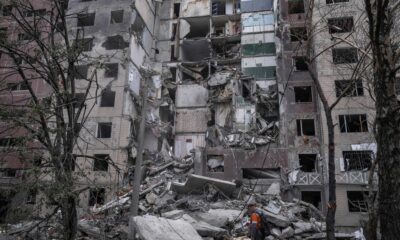A new report from the World Association of News Publishers (WAN-IFRA) highlights the concerning trend of governments using false charges of financial crimes to suppress the media. The report, titled ‘Misuse of economic charges to silence, threaten and attack the press: Review of case studies’, documents eight cases of media outlets facing attacks for their independent journalism, including NewsClick from India.
The report reveals that regimes often misuse economic charges like money laundering, tax evasion, blackmail, terrorism financing, fraud, and illegally receiving foreign funds to target independent media and journalists.
The report identifies five main trends resulting from these trumped-up economic charges. It points out that the threat of imprisonment from such charges creates a chilling effect in the media community. Additionally, many prosecutions lead to lengthy pre-trial detention, prison sentences, and hefty fines, causing financial loss, ruin, and closure of media outlets.
Freezing of assets
During investigations and trials, journalists and media outlets are often denied access to bank accounts and have their assets frozen, impacting their finances. Legal defense against these charges is expensive and requires expertise that journalists and media outlets may not easily access. The report also notes that narratives surrounding these charges aim to portray journalists as criminals, erode public support, and damage their reputation.
The report cites the case of NewsClick, where the outlet’s founder and head of human resources were arrested in connection with suspected foreign funding. The report criticizes the use of broad anti-terrorism laws to silence critical media and highlights efforts to cut revenue streams for independent media in a country where major outlets align with the ruling party.
Authorities utilized the Prevention of Money Laundering Act (PMLA) to investigate and seize NewsClick‘s property and accounts, while staff were detained under the Unlawful Activities Prevention Act (UAPA). The report emphasizes the misuse of these laws for political purposes.
The report underscores the effectiveness of financial crimes in silencing media and journalists, as they do not require a link to content produced and are not subject to the same international scrutiny as laws explicitly targeting media.
Other case studies in the report include Abzas Media from Azerbaijan, El Faro from El Salvador, Erick Kabendera from Tanzania, Jimmy Lai from Hong Kong, Jose Ruben Zamora from Guatemala, Maria Ressa and Rappler from the Philippines, and Nika Gvaramia from Georgia.
The WAN-IFRA report was created in collaboration with the Inter American Press Association (IAPA) and with the support of UNESCO.
Published – October 27, 2024 06:59 pm IST







































